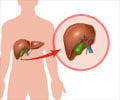A U.K. Government proposal to allow the use of human tissues taken from the mentally infirm without their consent, to create embryos for experimentation, has given rise to a fresh
In a controversial proposal the U.K. Government may allow the use of human tissues taken from the mentally infirm without their consent, to create embryos for experimentation.
The proposal is part of the controversial Parliament of the Human Fertilisation and Embryology Bill.On Wednesday MPs will vote on the bill that proposes to allow the creation of human/animal hybrid embryos to be used for stem cell research, to change the conditions for granting IVF, and to liberalise the abortion laws.
Medical ethics experts and religious leaders say that the provisions about allowing tissues to be used from people who lack the "mental capacity" to give consent, children whose parents give permission, and anyone who has previously donated samples to hospitals for medical research but can no longer be traced rides ride roughshod over basic human rights.
"In May we had a public debate about whether or not it is a good thing to create hybrid embryos," the Telegraph quoted Professor David Jones, director of the Centre for Bioethics and Emerging Technologies at St Mary's University College, London, as saying.
"Now it transpires that just weeks later, with no public debate at all, the Government inserted these amendments which cross a fundamental line in medical ethics by presuming consent in many cases. I think it is totally objectionable, and I really worry that this will create a backlash against medical research," he added.
He contends that such a law could cause people with strong ethical concerns about the creation of embryos to have their original wishes overruled, if they developed a disease like Alzheimers.
Advertisement
"The most intimate thing over which you have control is your body and its fate; and this is total violation of that basic right," he said.
Advertisement
Labour MP Dr Ian Gibson, a member of the committee that passed the amendments proposed by public health minister Dawn Primarolo, said that Parliament was making major changes with little consideration and almost no public debate.
"I am really worried that this whole debate has become hijacked by the issue of abortion, and that really significant issues like this have not had a good airing, and are unlikely to do so this week when the bill gets to its final stage, despite the fact this is a once-in-a-lifetime chance to make some fundamental decisions," he said.
Expressing his personal opposition to the use of tissue without consent, he said: "There has to be consent, there can be no substitution for it. If you are not sure it is what the person would have wanted, that is just not good enough," he said.
Describing the changes to the bill as a "macabre" prospect, Jim McManus from the Catholic Bishops Conference of England and Wales said: "This is a reckless step backwards, and it rides roughshod over a basic human right."
Scientists, on the other hand, insist that combining animal embryos with human cells could serve as a solution to the problem of less number of donationa of human embryos, which has been obstructing the expansion of research into the development and treatment of different diseases.
Catherine Elliot, from the Medical Research Council, said that research would "rarely" be carried out without consent, as the amendment would require ethics committees to be satisfied that the same research could not have been carried out using tissue from patients who had granted permission.
Source-ANI
RAS/SK









